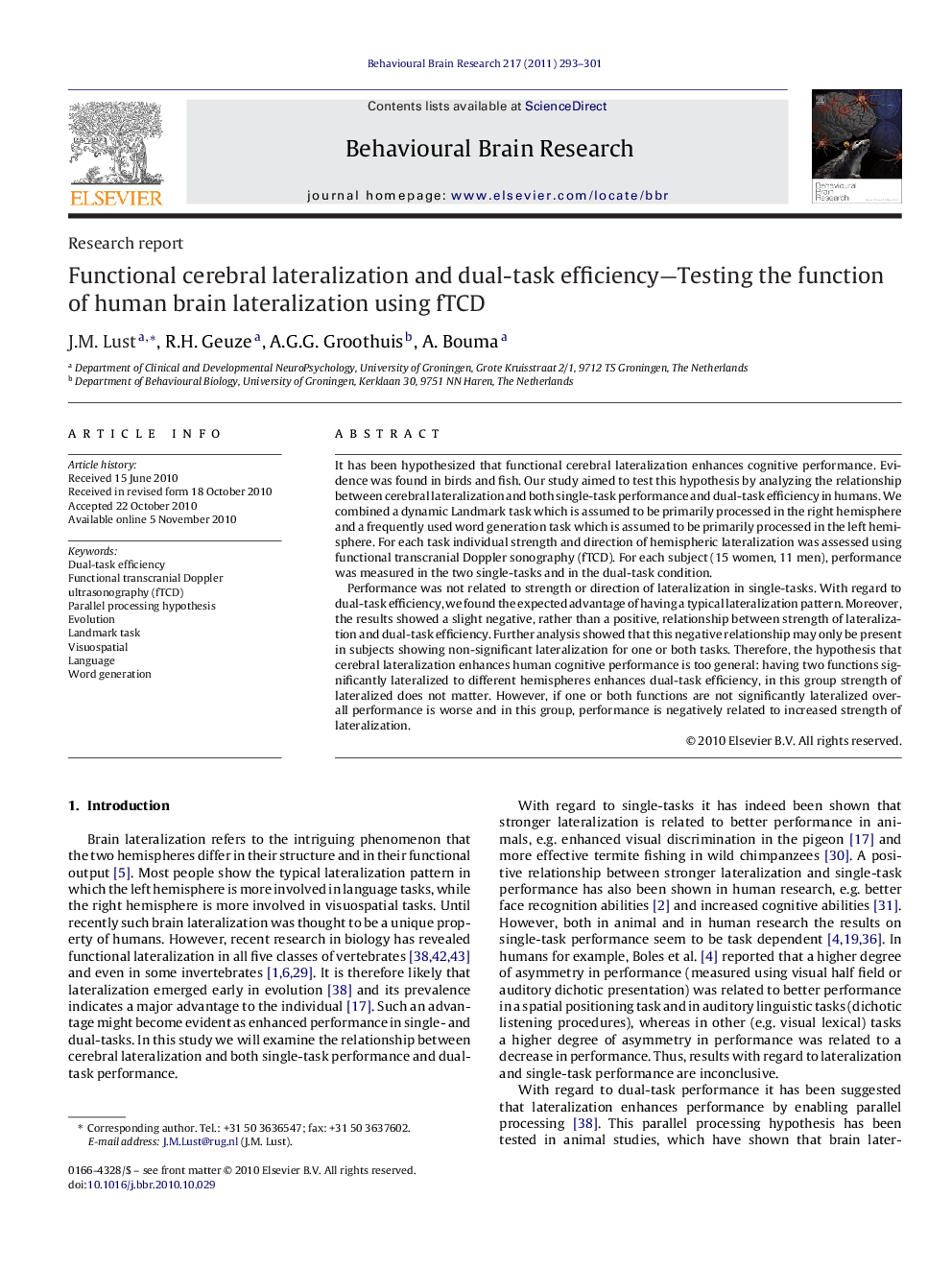| Article ID | Journal | Published Year | Pages | File Type |
|---|---|---|---|---|
| 6259982 | Behavioural Brain Research | 2011 | 9 Pages |
It has been hypothesized that functional cerebral lateralization enhances cognitive performance. Evidence was found in birds and fish. Our study aimed to test this hypothesis by analyzing the relationship between cerebral lateralization and both single-task performance and dual-task efficiency in humans. We combined a dynamic Landmark task which is assumed to be primarily processed in the right hemisphere and a frequently used word generation task which is assumed to be primarily processed in the left hemisphere. For each task individual strength and direction of hemispheric lateralization was assessed using functional transcranial Doppler sonography (fTCD). For each subject (15 women, 11 men), performance was measured in the two single-tasks and in the dual-task condition.Performance was not related to strength or direction of lateralization in single-tasks. With regard to dual-task efficiency, we found the expected advantage of having a typical lateralization pattern. Moreover, the results showed a slight negative, rather than a positive, relationship between strength of lateralization and dual-task efficiency. Further analysis showed that this negative relationship may only be present in subjects showing non-significant lateralization for one or both tasks. Therefore, the hypothesis that cerebral lateralization enhances human cognitive performance is too general: having two functions significantly lateralized to different hemispheres enhances dual-task efficiency, in this group strength of lateralized does not matter. However, if one or both functions are not significantly lateralized overall performance is worse and in this group, performance is negatively related to increased strength of lateralization.
Research highlightsⶠA typical lateralization pattern is advantageous for dual-task efficiency. ⶠStronger lateralization is not related to increased cognitive performance in humans. ⶠDynamic Landmark task suitable to measure performance and lateralization using fTCD.
